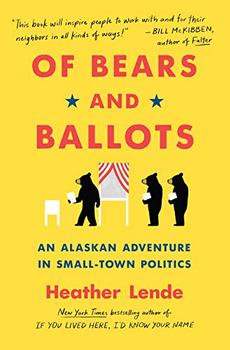Summary | Excerpt | Reviews | Beyond the book | Read-Alikes | Genres & Themes | Author Bio

How One Woman Made Good on Her Extraordinary Pact to Send a Classroom of 1st Graders to College
by Oral Lee Brown, Caille MillnerThe inspiring story of one woman's extraordinary promise and steely determination to make a difference in the world.
In the bestselling tradition of The Pact and The Freedom Writers
Diary—the inspiring story of one woman's extraordinary promise and steely
determination to make a difference in the world.
One morning in 1987 Oral Lee Brown walked into a corner store in East
Oakland, California, to buy snacks for work. A little girl asked her for a
quarter, and Brown assumed that she wanted to buy candy, but surprisingly she
bought bread and bologna—staples for her family.
Later that day Brown couldn't get the little girl out of her mind. Why wasn't
she in school? Why was she out begging for money to buy food for her family?
After several weeks of not being able to sleep, Brown went to look for the girl
at the local elementary school and soon found herself in a first-grade
classroom. She didn't find the little girl, but before she left she found
herself promising the kids that if they finished high school, she would pay for
their college education.
At the time, Oral Lee Brown made only $45,000 a year.
But years later, after annually saving and investing $10,000 of her own money
and establishing the Oral Lee Brown Foundation, this remarkable woman made good
on her promise: after nineteen of the original twenty-three students graduated
from high school, she sent them all to college. And in May of 2003, LaTosha
Hunter was the first of Brown's "babies," as well as the first person in her
family, to graduate from college.
This marvelous and inspiring book is the amazing story of one woman's
unending desire to make a difference. And if once was not enough, in 2001 Brown
made the same promise to three new classrooms of first, fifth, and
ninth-graders. Brown and her foundation are now committed to adopting a new crop
of kids to send to college every four years.
Brown's pledge to the students was not without great personal and public
sacrifice. Her promise turned her life upside-down—it strained her
relationships, and at times required her to work several different jobs. Brown
also developed a strong emotional attachment to the children—for many of these
students Brown was the one consistent adult in their lives.
In a world short on heroes, altruism, and dedication, The Promise
shows that it is still possible to change lives for the better. This book will
encourage, uplift, and inspire every reader.
A portion of the proceeds from the book will go to the
Oral Lee Brown Foundation.
To the naysayers who believe that they can't make a difference - that their few dollars in the charity box aren't worth it, or it's not worth voting because one vote doesn't matter - I offer you Oral Lee Brown. If she can put an entire class of students through college on an income of $45,000 a year what could we do? When she made her commitment to invest $10,000 a year into a college fund for the children, she didn't have a foundation to back her (in fact she only formed the Oral Lee Foundation when she realized that she couldn't deduct her own contributions on her tax return unless they were matched by money from others).
She also didn't realize that she was taking on much more than just a financial commitment - but she stuck with it. A few chapters into the book I thought that she was going a little over the top with her focus on what she had done for the children, and I wondered why she had so sidelined the parents' roles. However, as the story unfolded, I realized that, in many cases, the parents (or more accurately the single mothers and grandparents - only 4 children had fathers living at home) really hadn't had a role and that she had effectively raised many of the children herself, giving them the support, guidance, encouragement and discipline that weren't available to them at home. Her commitment strained her marriage to the point that it broke down, and required her to work multiple jobs (9 a.m.-5.30 p.m. in real estate, 6-10 p.m. running her restaurant,10 p.m. onwards making pies for an army contract), but in 2001, 19 of her class of 23 children graduated high school, and she sent them all to college. Now she and her Foundation have adopted three new classrooms of first, fifth and ninth-graders, and have committed to sending a new crop of kids to college every four years!..continued
Full Review
(1 words)
This review is available to non-members for a limited time. For full access,
become a member today.
(Reviewed by BookBrowse Review Team).
Oral Lee Brown was born in
Mississippi in the early 1940s. She is the ninth of twelve children
born to 'old-fashioned farming folk' who grew cotton and corn. Today
she lives in Oakland, California.
Although California reports an
official graduation rate of 87% to the Federal Government using a Federal
formula, on the Dept of State website they say the rate is closer to 71%
(based on the % of freshmen who enter high school and go on to earn a
diploma four years later). That number is troubling enough, but things
look even worse when broken down by ethnic group - according to
The Civil Rights Project at Harvard the Californian graduation rate for African-Americans is 57%
(50% for ...
This "beyond the book" feature is available to non-members for a limited time. Join today for full access.

If you liked The Promise, try these:

by Heather Lende
Published 2021
The writer whom the Los Angeles Times calls "part Annie Dillard, part Anne Lamott" now brings us her quirky and compassionate account of holding local office.

by Lyndsay Faye
Published 2019
The new and exciting historical thriller by Lyndsay Faye, which follows Alice "Nobody" from Prohibition-era Harlem to Portland's the Paragon Hotel.



Being slightly paranoid is like being slightly pregnant – it tends to get worse.
Click Here to find out who said this, as well as discovering other famous literary quotes!